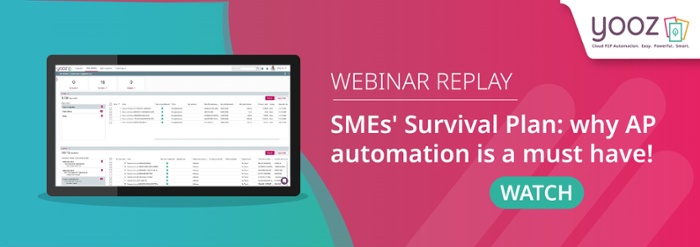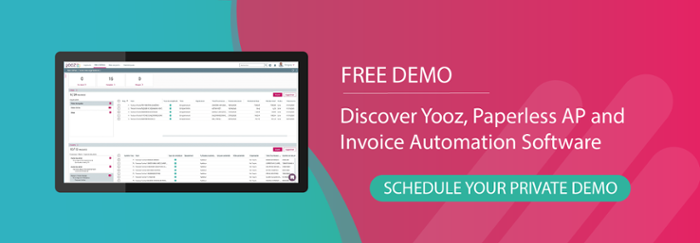With more than 9 in 10 organsations taking action to minimise the effects of inflation on their bottom line, the question many have now is: "What can we do?" One method is implementing some form of digitalization in finance, another is inflation accounting; a measure often used during times of increasing or plummeting prices in certain areas of the world... but how does it work And most importantly: is it even worth considering?
In this article, we'll cover the fundamentals of inflation accounting, from what it is and how it works to its advantages, disadvantages, and more.
What is inflation accounting?
For every organisation around the globe, both inflation and deflation can have a significant impact on historical financial statements, information, and financial reports, often distorting their true economic performance. To overcome this, organisations can use inflation accounting (also known as price-level accounting) to adjust their financial statements according to the general price index or price index.
The result? These organisations can quickly rectify any issues or inconsistencies that arise from traditional historical cost accounting during the effects of inflation, hyperinflation, or deflation. And as currency fluctuates regularly, it allows them to provide inflation-adjusted financial statements that are representative and comparable with other companies and historical information.

How does inflation accounting work?
Inflation accounting is similar to converting financial statements into another currency using an exchange rate. While traditional accounting methods focus on historical cost and the matching principle (i.e. accounting for recording revenues and expenses), inflation accounting recognises the importance of inflationary pressures - and how they might influence a firm's financial position or performance.
Depending on where an organisation is in the world, international financial reporting standards (e.g. IFRS, GAAP) allow or require firms to adjust their financial statements for inflation. For example, the IFRS states that for any entity whose functional currency is the currency of a hyperinflationary economy, IAS 29 applies. Firms that fall under this category may have to update their statements periodically to ensure they're relevant to current economic and financial conditions.
Inflation accounting methods
Inflation accounting comprises two methods, Current Purchasing Power and Current Cost Accounting.
Current Purchasing Power (CCP):
Also known as general price-level accounting, CCP is a mixed method that adjusts historical costs based on the general price level index. Changes in the general level of prices represent changes in the general purchasing power of the monetary unit (e.g. the basic form of currency in a country).
Current Cost Accounting (CCA):
This method involves evaluating assets at their Fair Value Market (FMV) rather than historical cost during the fixed asset purchase. CCA provides more realistic book values by valuing assets at current market prices rather than historical costs.
Using inflation accounting methods (CCP)
Let's say a firm purchased a brand-new office building on June 01 2022 for £100,000. On that day, the Consumer Price Index stood at 300. Today, it reflects 600. Now, we're required to reflect the revalued value of the building using the CPP method.
To start with, we have to apply the conversion factor formula (Consumer Price at the Current Period/Consumer Price at the Historical Period) to get to the actual value. The equation is as follows: 600/300 = 2. From there, we multiply £100,000 by the current conversion factor, making £200,000.
Using inflation accounting methods (CCA)
Suppose a firm owns a building that it purchased for £500,000 five years ago. The firm estimates that the useful life of the building is 10 years, meaning it depreciates by £50,000 every year (£500,000 divided by 10 years).
However, due to an uptick in the real estate market, the current market value of the building has increased to £1,000,000. Therefore, using the current cost accounting method, the firm would have to revalue the building to reflect its new market value.
Given that five years have passed since the firm purchased the building, the total depreciation is £250,000 (5 years multiplied by £50,000). After revaluing the building, the firm would adjust the book value by subtracting the depreciation from the current market value, resulting in a market value of £750,000.
What are the advantages of inflation accounting?
The main benefit of inflation accounting is that it ensures organisations can match current values with current costs, providing a more realistic breakdown of profitability.
- Accurate and fair value: After firms have provided inflation-adjusted figures for monetary items and assets, there's an unbiased view of their financial position
- Accurate depreciation: When firms represent the true value of assets, it's much easier to calculate depreciation at face value, rather than historical cost
- No overstatements: Inflation accounting avoids any change of overstatements of business income by financial statements, as all financial statements are adjusted based on the current price index
- Reasonable assessment: By presenting two years' worth of balance sheets and adjusting them for price inflation, accountants can quickly and easily compare the values after deducting inflation
What are the disadvantages of inflation accounting?
- Deflation causes exaggeration: During deflation, prices always fall. Adjusting to price level change means charging lower depreciation and overstating profits.
- Neverending process: A major issue with inflation accounting is that prices are constantly changing, and therefore adjusting financial statements whenever inflation or deflation occurs becomes a tedious task
- Highly expensive: As inflation accounting requires constant review, it tends to be much more time-consuming and therefore expensive when compared to traditional accounting methods.
Going beyond inflation accounting: how can organisations drive transformation?
Right now, inflation is an incredibly pressing and challenging reality for firms across the globe. According to recent research from the Yooz State of Automation in Finance 2023 report, almost half (40%) of all firms have reduced their expenses to reduce the impact of inflation and tighter monetary conditions. Furthermore, over a quarter (26%) have reduced their overheads by downsizing office space or reducing energy costs, and 23% are increasing the use of technology and automation in their businesses.
Inflation accounting provides a way for firms to adjust their financial statements with a higher degree of accuracy, but perhaps what they truly need is a way to automate at scale, with both agility and confidence.
As CFOs become increasingly interlinked with every aspect of their organisations, from managing inflation to things like Environmental, Social & Governance, and even talent attraction, it's important that they leverage the appropriate tools to operate efficiently and effectively.
At Yooz, we provide a smart, powerful, and easy-to-use cloud-based Purchase-to-Pay (P2P) automation solution. It delivers unmatched savings, incredible speed, and robust security with affordable zero-risk subscriptions to more than 5,000 customers and 300,000 users worldwide.
If you're ready to go beyond inflation accounting and embrace a solution that can help transform how your organisation operates - both now and in the future - we're ready to help. Embracing digitalization in finance through our platform can revolutionize your financial processes, driving efficiency and enhancing decision-making capabilities.
So say goodbye to your usual accounting system. Get started with Yooz
FAQs for inflation accounting
What is Current Cost Accounting (CCA)?
Current cost accounting is an accounting method that records business items in financial statements at their net current replacement cost. The opposite of historical cost.
What are price indexes?
Price indexes measure the monthly change in prices as paid by consumers in a given country. For example, the consumer price index (CPI).
What are the international financial reporting standards?
The international financial reporting standards are a set of accounting standards that govern how particular types of transactions and events should be reported in financial statements.


-1.jpg)







